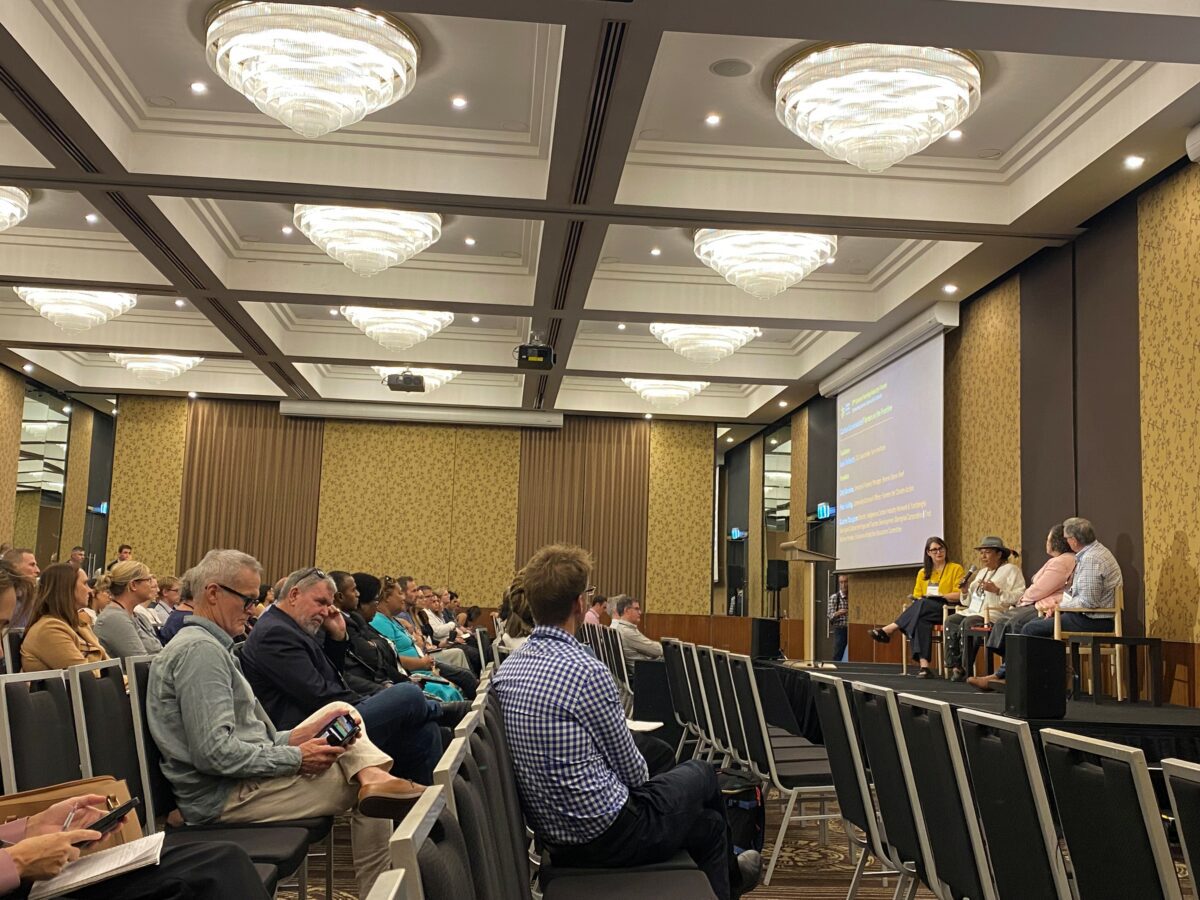In a move that will speed the development of new ways to drive investments in climate solutions, Climate Change Minister Chris Bowen today announced that carbon project stakeholders can now apply to prepare new carbon credit methods and submit them for approval – a move away from political control of that process.
Bowen announced the new process, which aligns with a recommendation of the independent Chubb Review of the ACCU framework, on the opening day of the Carbon Market Institute’s Carbon Farming Industry Forum in Cairns.
Under the new arrangement, interested organisations and businesses can submit an expression of interest to develop a new ACCU framework method.
“This is a big step forward,” Minister Bowen said.
Suggestions for new methods will be evaluated by the ACCU integrity body, the Emissions Reduction Assurance Committee, which will use “clear triaging criteria” to ensure proposals are well-placed to meet mandatory integrity standards, the Minister said.
CMI chief executive John Connor said the Minister’s announcement “removed a significant bottleneck that had prevented farmers and project developers, including First Nations peoples, from making a greater contribution to reaching net zero.”
“The new process will be particularly important as some of the earliest methods for earning carbon credits have reached the end of their life, and are no longer operational,” Connor noted.
“Until now, the government has had sole responsibility for prioritising and developing new methods, but this has proved too slow,” Connor said. “For example, none of the five new method priorities for 2022, announced in October 2021, have yet been finalised.”
Minister Bowen told the Forum that the ACCU framework “plays a critical role” in Australia’s decarbonisation efforts.
It also provides economic and social, cultural and environmental benefits for land managers, which will be further enhanced in future as the nascent Nature Repair Market takes shape, he said.
Bowen noted that over the past two years, the Department of Climate Change, Energy, the Environment and Water, the Clean Energy Regulator, auditors, and project proponents have worked to bolster the integrity and transparency of the ACCU framework “so it can continue delivering for the climate for people and for the Australian economy”.
The Carbon Farming Industry Forum is running today and tomorrow in Cairns, featuring speakers representing farmers and land managers, including Traditional Owners, as well as regulators, and investors.
Background:
Until now, climate change ministers have specified ACCU method development priorities, with development work on the priority methods carried out by the Clean Energy Regulator or the climate change department.
The Chubb Review found the existing ACCU method development process “impedes timely and effective emissions reductions”.
It called for the establishment of a transparent proponent-based process for developing and modifying ACCU framework methods, with the integrity committee assuring their integrity and DCCEEW providing support.
“The process for prioritising new methods for development has not been sufficiently transparent and accessible to all groups,” the Chubb Review found.
The new process would “facilitate fit-for-purpose development and implementation of methods for delivering high integrity emissions-reductions”, it said.
“This approach would also support the development of a portfolio of methods able to deliver emissions reductions at scale,” it said.
The newly expanded ERAC, which is to be legislated as the Carbon Abatement Integrity Committee, will now guide the method development process supported by DCCEEW.
Ahead of the opening day at the Carbon Farming Industry Forum, CMI released it’s third annual Carbon Farming Roadmap report, which evaluates the progress of all Australian jurisdictions in fostering growth & ambition across the industry, as well as facilitating transparency and integrity. The full report is available here.
Further information on the 8th Carbon Farming Industry Forum can be viewed here.
About the Carbon Market Institute
The Carbon Market Institute (CMI) is a member-based institute accelerating the transition towards a negative emissions, nature positive world. It champions best practice in carbon markets and climate policy, and its around 150 members include primary producers, carbon project developers, Indigenous organisations, legal, technology and advisory services, insurers, banks, investors, corporate entities and emission intensive industries. The positions put forward constitute CMI’s independent view and do not purport to represent any CMI individual, member company, or industry sector.
For further information, contact Thomas Hann on 0408 880 536 or thomas.hann@carbonmarketinstitute.org



